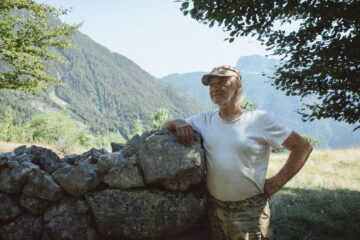From the alpine plateau to the wild river in the mountains: How can visitor flows be managed in a meaningful way? What are the problems involved? How and by whom could they be solved? Four pilot regions sought answers to these questions in the speciAlps 2 project. The current CIPRA podcast reports.
Where a few decades ago there were still lonely valleys with mystical waterfalls and crystal-clear mountain lakes, today cars are jammed on access roads and visitors get in each other’s way looking for the next insider tip. In some areas of the Alps, pictures like these are unfortunately part of everyday life. Four pilot regions in the Alps have set themselves the goal of changing this: The Tiroler Lech Nature Park/A, the Kamnik and Savinja Alps/SL, the mountaineering village of Balme/I and Bad Reichenhall/D. They developed measures to manage the growing number of visitors. In the CIPRA podcast the coordinators of the pilot regions talk about problems and approaches to solving them. They talk about what politics, tourism, regional development and other decision-makers can do to ensure that nature and visitors benefit equally. This current episode of the CIPRA podcast was produced by the Alliance in the Alps network of municipalities.
What can visitors themselves do to protect sensitive natural areas? This was the subject of the CIPRA podcast episode „How to protect the Alps with your behaviour“: Cipra_international – Specialps2-code-of-conduct
Both podcasts were produced as part of the speciAlps 2 project on visitor management. CIPRA International coordinated the project together with the Alliance in the Alps network of municipalities with financial support from the German Federal Ministry for the Environment, Nature Conservation, Nuclear Safety and Consumer Protection (BMUV).
Further information on the project: www.cipra.org/de/specialps2 (de, fr, it, sl, en)
Photo credit: pixelteufel, flickr.com



















